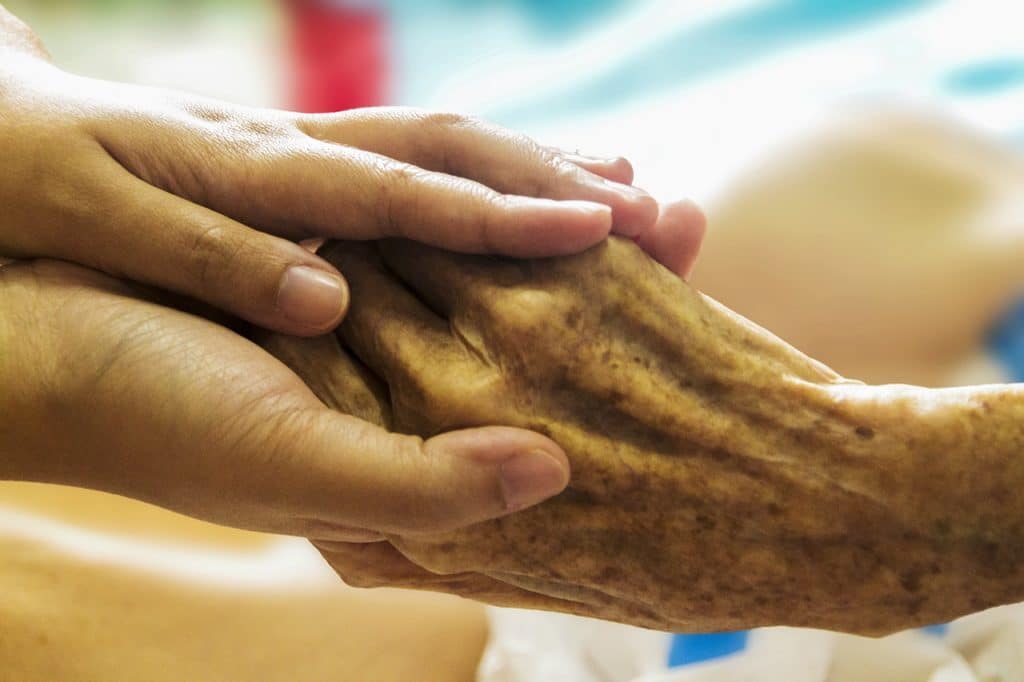


Does your elderly family member require surgery or a major medical procedure in the new year? When your parent or loved one is hospitalized for a procedure or a sudden illness, it can be an incredibly stressful and hectic time for your family. It’s also a common scenario: people age 65 or older comprise 43% of inpatient operations. The COVID-19 pandemic has further complicated surgery visits and hospitalization, as extra precautions are needed to protect your aging family member before, during, and after their visit. Many other factors contribute to the challenge and stress of at-home recovery care.
First, there’s the risk of readmittance if things don’t go well. Readmission risk factors include cognitive impairment and risk of falling. Success also greatly depends on having the right support at home, after discharge. Without adequate preparation and ongoing support, nearly 20% of seniors are readmitted to the hospital within 30 days of being sent home.
Seniors also take more time to heal, generally. Healing (for example, from wounds) is a slower process and it’s imperative to “vigorously” treat your loved one for maximum healing.
Another challenge and stressor is that hospital discharge often occurs quickly and not on a schedule. This can leave a family scrambling to get things in order in preparation for their family member’s return home.
Last but not least is the toll it takes on you. But you’re not alone. Enter: professional at-home recovery assistance from a trusted, vetted caregiver. At-home recovery assistance is typically performed by a qualified caregiver for non-medical activities and by a medical home health aide for medical-related activities. Please read on for some general tips to make the at-home recovery process as smooth and safe as possible, for all involved.
We know that at-home recovery is hard. According to the Caregiving in the U.S. 2020 report (from AARP and the National Alliance for Caregiving), 36% of family caregivers say their situation is highly stressful. The situation can be a grind. It tests your patience and it can lead to fatigue, guilt, and frustration.
The American Psychological Association finds that older caregivers (age 55 to 75) have a 23% higher level of stress. It also reduces the body’s ability to fight illness—family caregivers have a 15% lower level of immune response. Which puts you at risk for burnout and illness, and that’s not helpful for you or your aging family member.
Are you feeling some of these effects? Check in with yourself. You might consider taking this “How Are You?” self-assessment. The Alzheimer’s Association also shares 10 signs that you may be experiencing the stress and challenge of at-home recovery care. These include:
Source: How to Avoid Caregiver Burnout, AARP
At-home recovery assistance is a challenging situation to navigate, but there are steps you can take to make it easier. Some suggested steps include:
Recovery can encompass a broad scope of post-discharge doctor’s orders, personal care, medication reminders, and other essential elements. You may find it very difficult to handle all of this on your own, on top of everything else you need to do. Professional at-home recovery assistance can make it safer and easier for both your loved one and your family, and you!
Since 2007, our mission has been to make high-quality, affordable care accessible. We provide meaningful impact for the people who need assistance, the families who love them, and the caregivers who perform these critical services. At 1+1 Cares, our goal is to make this process easy and affordable. Referring you to a qualified caregiver is our way to relieve some of your stress and uncertainty during these periods of at-home recovery.
Caregivers can help ensure that an individual’s recovery is fully supported with activities such as:
At 1+1 Cares, we’ve got you covered. We have a large and competitive pool of qualified caregivers. Which means you’ll not only connect with the ideal person but you’ll also have options for backup caregivers at your service. This is important should your main caregiver(s) become unavailable during the recovery period.
To learn more about how your elderly loved one can benefit from our senior recovery assistance, please contact 1+1 Cares. Our dedicated team will refer the right caregiver to assist in a speedy recovery for your loved one.
1+1 Cares is seeking talented and caring individuals to provide quality senior home care in many cities and regions. If you want to pursue a new career or simply earn additional income helping local families, please sign up to give care today with 1+1 Cares.
